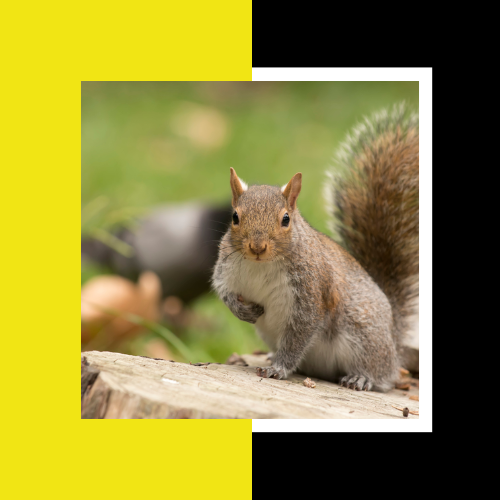The vibrant bustle of squirrels in your backyard might offer a picturesque charm, but left unchecked, these nimble creatures can unleash significant damage, entailing a plethora of risks. Their agility is nothing short of remarkable - these frisky rodents can leap up to nine feet horizontally, scaling even the loftiest heights of your property with ease. Their hoarding instinct is another marvel, enabling each squirrel to bury thousands of acorns or nuts per season. This not only aids their survival but inadvertently contributes to the proliferation of new trees in the area.
One often overlooked fact is the continuous growth of squirrel teeth. To maintain a manageable size, squirrels gnaw persistently on various objects. This behavior can be detrimental when those objects include your wooden structures, electrical wires, and pipes, often leading to expensive damage and potential hazards. Moreover, the fecundity of squirrels, with females birthing two litters annually, can lead to an explosive population growth if not properly managed.
Our abundant squirrel population comprises mainly the Flying, Gray and the Red species. These active diurnal creatures are excellent climbers, using their sharp claws and swift movements to navigate trees and structures effortlessly. The smaller Eastern gray measures around 9 to 11 inches, while the larger Eastern fox can reach up to 15 inches.
Their inquisitive nature and adaptability are noteworthy. Squirrels have a knack for locating food sources, whether that's raiding bird feeders, scavenging in gardens, or rummaging through trash cans. Their nests, known as dreys, are usually nestled in trees or suitable structures, providing safe havens for their rest and nurturing their young. But when their activities become a nuisance, what signs should you watch for? Chewed holes or gnaw marks on your walls, eaves, or rooflines can signal a squirrel infestation. Their droppings resemble small pellets, and you might find collections of nesting materials near entry points. If you hear unusual scratching or scurrying sounds in your home, it's likely a tell-tale sign of their presence.
Squirrels excel at finding entry points into your home, including gaps in the roofline, vents, chimneys, or damaged siding. Once inside, their gnawing can inflict significant damage to electrical wiring, insulation, and structural materials. Moreover, their powerful teeth can chew through wood, plastic, and even metal, posing serious threats to your property and potentially creating fire hazards.
These creatures are also vectors of diseases, such as leptospirosis, salmonellosis, and tularemia. Direct contact with squirrel droppings or indirect exposure to contaminated surfaces can lead to transmission. Hence, professional handling is paramount to minimize risks.
Our humane and effective methods are designed specifically for squirrel removal without causing harm.
FAQs
Q. Are Squirrels Dangerous To Humans?
A. They are generally not aggressive towards humans unless they feel threatened or cornered. They are known to defend themselves if they perceive a direct threat, such as if they are startled or if their young are in danger.
Q. Can I Keep A Squirrel As A Pet In Massachusetts?
A. In Massachusetts, the only species that is legal to keep as a pet is the flying squirrel.
Q. Do Squirrels Hibernate?
A. Most do not hibernate. Instead, they remain active throughout the year, gathering and storing food during the fall to prepare for the winter. While they may become less active during extremely cold weather, they do not enter a true hibernation state.
If you're facing a squirrel infestation, don't delay in seeking professional assistance.
Contact Expert Wildlife Removal Service today for a comprehensive inspection, effective removal, and long-term control solutions.


